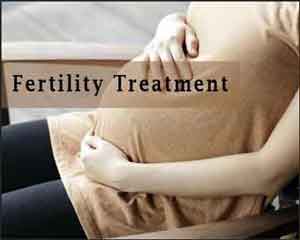- Home
- Editorial
- News
- Practice Guidelines
- Anesthesiology Guidelines
- Cancer Guidelines
- Cardiac Sciences Guidelines
- Critical Care Guidelines
- Dentistry Guidelines
- Dermatology Guidelines
- Diabetes and Endo Guidelines
- Diagnostics Guidelines
- ENT Guidelines
- Featured Practice Guidelines
- Gastroenterology Guidelines
- Geriatrics Guidelines
- Medicine Guidelines
- Nephrology Guidelines
- Neurosciences Guidelines
- Obs and Gynae Guidelines
- Ophthalmology Guidelines
- Orthopaedics Guidelines
- Paediatrics Guidelines
- Psychiatry Guidelines
- Pulmonology Guidelines
- Radiology Guidelines
- Surgery Guidelines
- Urology Guidelines
ICSI offers no benefit over IVF in treating female infertility

Austria: Intracytoplasmic sperm injection (ICSI) is an increasingly popular technique in achieving fertilization through assisted reproduction among infertile couples. Now, a recent study has found that ICSI offers no benefit over conventional in vitro fertilisation (IVF) in fertility treatments not involving a male factor indication. In simple words, ICSI is not beneficial over IVF in treatment of non-male infertility, irrespective of ovarian response.
These are the results of the study presented at the annual meeting of the European Society of Human Reproduction and Embryology in Austria.
ICSI, developed in the 1990s, involves the direct injection of sperm into the eggs obtained from IVF. It is used as a specific treatment for infertility of male cause including poor quality or insufficient sperm cells in the ejaculate. Now, with this technique, just one one sperm cell might be enough for conception.
However, since its development, the ICSI has been used for the treatment of all types of sub-fertility, not just infertility resulting from a male cause. Globally, ICSI cycles now outnumber conventional IVF cycles by around two to one, and in some countries—in the Middle East, for example—assisted reproduction cycles are entirely ICSI.
Panagiotis Drakapoulos from UZ Brussels, the pioneering Belgian centre, and colleagues compared outcomes in ICSI and IVF in nearly 5,000 non-male factor cases in Belgium and Spain in this large population-based study. They were divided into four groups based on ovarian response: Group 1: poor responders (1-3 oocytes), Group 2: suboptimal responders (4-9 oocytes), Group 3: normal responders (10-15 oocytes), Group 4: high responders (>15 oocytes).
Also Read: Infertility treatment like IVF, raises risk of pregnancy complications
Key findings of the study include:
- Results firstly showed no overall difference in outcome (fertilisation rate, live birth rate and cumulative live birth rate) in the ICSI or standard IVF cycles.
- These comparable findings were also evident in four different patient response categories ranging from poor responders (1-3 eggs retrieved) to high responders (more than 15 eggs retrieved).
Also Read: Certain Drugs, supplements improve sperm quality but do they improve fertility?
"It's clear from these results," said Dr Drakapoulos, 'that the number of oocytes retrieved has no value in the selection of the insemination procedure in cases of non-male infertility," confirming that ICSI will not improve outcome in cycles in which only a few eggs are retrieved.
He further added that the rationale for the high use of ICSI in non-male factor cases is based on a wrong assumption that ICSI may be associated with a higher likelihood of fertilisation and an increased number of available embryos. “However, our results show that this assumption is misplaced."

Disclaimer: This site is primarily intended for healthcare professionals. Any content/information on this website does not replace the advice of medical and/or health professionals and should not be construed as medical/diagnostic advice/endorsement or prescription. Use of this site is subject to our terms of use, privacy policy, advertisement policy. © 2020 Minerva Medical Treatment Pvt Ltd